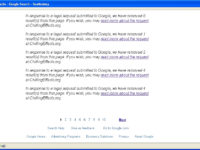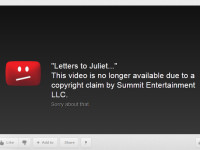The release of the Supreme Court of Canada’s Google v. Equustek decision attracted global attention with many rightly focused on the implications of global takedown orders for freedom of speech online (my post on the case here, Daphne Keller, EFF, Howard Knopf, Techdirt). The decision raises serious concerns as it invites courts around the world to issue global takedown orders that will likely lead to increased incidents of legal conflicts. That could vest enormous power in the hands of intermediaries such as Google, which will either remove links to content that is lawful in some countries or pick and choose among the orders they are willing to follow.
Post Tagged with: "takedown"
The TPP’s Canadian Copyright Costs Creating Concern
The Trans Pacific Partnership agreement is still not public – the text may not be released for sometime – but with the leak of the intellectual property chapter, the implications for Canadian law is already well known. Despite the prior government’s claims that the deal was largely consistent with current law, the reality is that the TPP will require significant changes to Canadian copyright.
The biggest change is a requirement to extend the term of copyright from life of the author plus 50 years to life plus 70 years. The additional 20 years will keep works out of the public domain for decades. The New Zealand government estimates that this change alone will cost NZ$55 million per year for a country that is one-ninth the size of Canada. Moreover, New Zealand was able to negotiate a delayed implementation of the copyright term provision, with a shorter extension for the first 8 years and only after the full extension. The TPP also would appear to bring a copyright takedown system to Canada without the involvement of Canadian courts and potentially without the application of Canadian copyright law.
Why the TPP Creates a Backdoor Copyright Takedown System in Canada
The 2012 Canadian copyright reform law featured several “made in Canada” provisions that the Conservative government touted as striking a better balance than rules found elsewhere. At the top of the list was the notice-and-notice system for Internet providers. Minister James Moore (then of Canadian Heritage and later Industry) specifically cited the Canadian system as an example of how Canada had “rejected the American style approaches on massive parts of our legislation.” Yet a close reading of the leaked version of the Trans Pacific Partnership intellectual property chapter suggests that Canada may just have agreed to establish a copyright takedown system.
The preservation of the notice-and-notice was a top copyright priority for the Canadian government, so much so that it caved on copyright term extension and implemented digital lock rules that were widely criticized by the Canadian public. However, the negotiators may have failed to keep a notice-and-takedown system out of Canada. Section I of the copyright chapter creates a U.S. style notice-and-takedown system. The Canadian solution was to create a special annex that provides an alternative to the U.S. approach. While the annex was designed specifically for Canada, it would appear that it fails to prevent copyright takedowns from coming to Canada.
Transport Canada Issues DMCA Takedown Over On-the-Record Response
Transport Canada has reportedly issued a DMCA takedown notice to Scribd over an on-the-record response it provided to a journalist. The move is particularly odd (though not unprecedented, see here and here) given the document was issued to a journalist and the government changed its crown copyright licence last year […]
UK Music Publishers Take Down Canadian Sheet Music Site
The UK Music Publishers Association has succeeded in taking down the International Music Score Library Project, an enormously popular Canadian-based sheet music site that has posted thousands of public domain scores. The site has faced legal threats from European publishers in the past and worked hard to ensure that all […]









